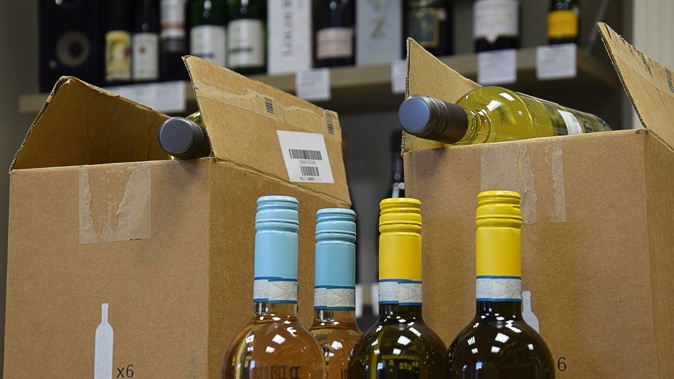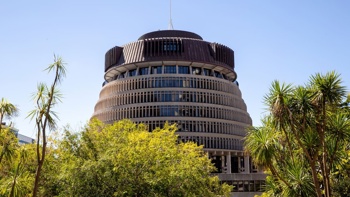
Alarm bells are being rung over the massive growth of home-delivered alcohol in New Zealand and the relative absence of restrictions.
Licensing authorities and social services say the number of remote liquor licences issued has exploded since 2020, making it easy for people to get drinks delivered to their doorstep, side-stepping checks around age and intoxication.
The alcohol industry itself agrees the rules for remote sales are too relaxed and has given advice to Government on how to fix them.
“We don’t want this growing area of e-commerce to be something like the Wild West,” Spirits NZ chief executive Robert Brewer told the Herald.
Home delivery of alcohol, like many products, took off in the early stages of the Covid-19 pandemic.
In a report published in August, the Salvation Army said that of the 352 mail order licences around the country, a third of them had been granted since 2020.
While the growth of the sector improved convenience for shoppers and reduced face-to-face contact at the height of the pandemic, it also sparked concerns among authorities in urban areas about the lack of safeguards.
District Licensing Committees (DLCs) in Auckland, Wellington and Christchurch all noted the huge growth of remote sales licences and said the regulations appeared to be “quite loose” in relation to delivery to minors or intoxicated people.
“Hundreds of businesses selling all sorts of products have enquired wishing to add alcohol to the products they sell,” the Auckland District Licensing Committee said in its annual report.
“Alcohol has become more readily available via remote sellers. Buyers don’t have to leave their home to be able to buy alcohol they can receive within 20 minutes.”
- Supermarkets and bottle stores could face stricter limits on alcohol sales after Government announces reforms
- New changes to alcohol licensing laws could impact retailers going forward
- Alcohol Healthwatch executive director hopes alcohol law reform will benefit deprived communities
- Alcohol Healthwatch Executive Director comments on new alcohol reduction bill
The DLC noted that a law change in 2012 which enabled remote sales was designed for wineries, and on the premise that it would be delivered two or three days later.
However, people were now ordering nearly any type of alcohol from a broad range of sellers and getting it delivered within half an hour.
/cloudfront-ap-southeast-2.images.arcpublishing.com/nzme/3O7RKRQC6RCCTNXZSVWAVDU6OU.jpg)
A law change in 2012 which enabled remote sales was designed for wineries. Photo / 123rf
Social services were also concerned. The Salvation Army, which provides drug and alcohol addiction services, said the growth of the sector had increased the availability of alcohol in communities.
“And when you increase accessibility that creates a lot of issues down the line for whānau that we support that struggle with alcohol addiction,” said social policy analyst Ana Ika.
Remote licences had been mainly limited to “fancy wine stores”, she said, but now included bottle stores that sold strong spirits and single cans - products associated with alcohol abuse.
“We are hoping with the reform of the [Sale and Supply of Alcohol Act] that they will also address mail order licensing so that the DLC can monitor it in a way that protects consumers but also protects the wider community when it comes to alcohol.”
There was a further gap in the law, Ika noted. To oppose or appeal a new alcohol licence, a person or group had to live within 2km of the seller. That could make it impossible in the case of online retailers without a local outlet.
Brewer, from Spirits NZ, said home delivery still only made up a fraction of total sales. But the change to consumer behaviour which began under Covid appeared to have “cemented” in, he said.
His organisation has provided guidelines to the Government on the issue which he hopes will be adopted in planned reforms of alcohol laws scheduled for next year.
Under existing regulations, remote sellers must take “reasonable steps” to verify the buyer and receiver of alcohol are 18 years old. Reasonable steps are defined as confirming the buyer’s age twice - by ticking a box online, confirming age over the phone or by signing a form.
But there is nothing in the law to stop alcohol from being left on the doorstep or being delivered to intoxicated or underage people.
“We actually have pretty good regulations but they stop at the gate of the house,” Brewer said.
Spirits NZ’s guidelines propose that alcohol deliveries not be left unattended at a person’s front door; that there be age verification at the door (with similar discretion to a bottle store or supermarket); and that deliveries of alcohol not be given to anyone who is intoxicated.
Brewer also questioned the broad delivery hours of 6am to 11pm, saying they should be reduced.
The Government is in the process of reforming New Zealand’s alcohol laws.
/cloudfront-ap-southeast-2.images.arcpublishing.com/nzme/MDLFI7FKHH66FJOFQG4NEOJ7HQ.jpg)
Minister of Justice Kiri Allan is leading reforms of New Zealand's alcohol laws, with plans to review sponsorship and marketing of liquor in 2023. Photo / Mark Mitchell
Asked whether remote sales could be targeted, Justice Minister Kiri Allan said through a spokeswoman that it had not yet been decided what would be covered in the reforms.
District Licensing Committees report every year to the Alcohol Registering and Licensing Authority (ARLA), which then provides advice to Parliament on any issues or gaps in alcohol laws.
Despite the issue being raised persistently since the pandemic began, it has not been mentioned in ARLA’s publicly available reports.
Take your Radio, Podcasts and Music with you









